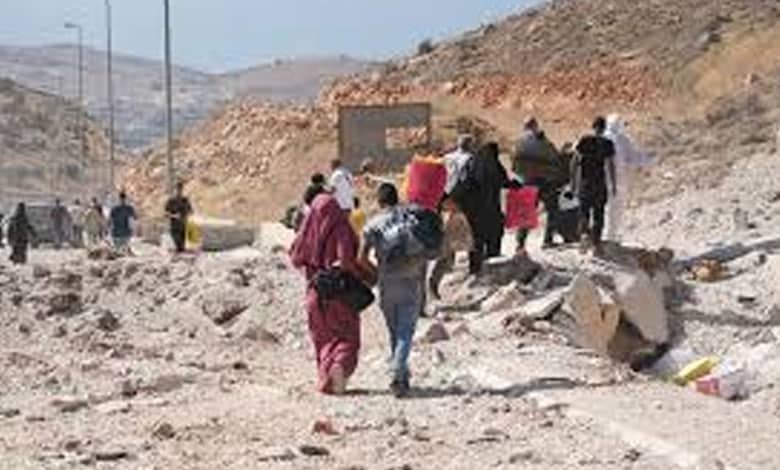Winter of Despair: UN Sounds Alarm Over Fuel Shortages and Humanitarian Struggles in Syria
The United Nations has raised significant humanitarian concerns in Syria, citing ongoing insecurity in the country’s northern and northeastern regions, as well as the economic struggles that are severely affecting both humanitarian efforts and the livelihoods of Syrians.

United Nations: The United Nations has raised significant humanitarian concerns in Syria, citing ongoing insecurity in the country’s northern and northeastern regions, as well as the economic struggles that are severely affecting both humanitarian efforts and the livelihoods of Syrians.
The latest reports from the UN Office for the Coordination of Humanitarian Affairs (OCHA) paint a grim picture of the situation in Syria, with increasing insecurity, skyrocketing inflation, and a humanitarian crisis exacerbated by rising costs and a lack of resources.
Table of Contents
Rising Insecurity in Northern Syria
The UN continues to highlight insecurity in areas such as Al-Hasakeh Governorate in the northeast and near the Tishreen Dam in northern Aleppo Governorate. Reports of artillery shelling and other incidents of violence have led to increased fears for the safety of both residents and humanitarian workers. These security issues are making it difficult for aid organizations to provide support to those in need.
Economic Struggles and Inflation Hinder Humanitarian Efforts
The ongoing economic challenges in Syria, including rampant inflation, are putting a strain on essential humanitarian operations. Price hikes across the country, coupled with a lack of regional banking services, are severely affecting cash assistance programs. This is further exacerbated by rising fuel and transportation costs, which have forced many humanitarian teams to focus on urban areas, leaving rural and remote regions without vital services such as counseling and psychosocial support.
Also Read: Jharkhand High Court Issues Notice Over Liquor and Meat Sales at Parasnath Hill
In Damascus, the economic burden is also leading to a shortage of teachers and education personnel, as high transportation costs prevent staff from reaching schools and communities.
Heating Fuel Shortages and the Impact on Displaced Syrians
The winter season has been particularly difficult for those living in displacement camps, with heating fuel prices soaring by up to 80% in some areas. In the northwest, particularly in Idlib Governorate, where 1.5 million people live in displacement camps, access to heating remains limited, leaving many families struggling to survive the harsh winter.
Last year, more than 12,000 family tents and shelters in camps across Idlib and Aleppo were destroyed or damaged by fires, flooding, and other incidents. In response, OCHA undertook a mission to Turkey and Aleppo city to engage with local authorities on the dire conditions in these camps, particularly during the winter months.
Returnees Face Difficult Conditions
OCHA also reported an increase in the number of people returning to rural areas of Aleppo after being displaced. Many families are living in damaged and looted houses, often lacking basic infrastructure such as doors, windows, and proper sanitation. Despite the challenges, aid efforts in the region have included cash-for-work programs, peacebuilding initiatives, and education activities funded by the Syria Humanitarian Fund.
Urgent Need for Humanitarian Support in Syria
As the situation in Syria continues to worsen, OCHA stresses the need for international support to address the growing humanitarian crisis. With inflation, insecurity, and a lack of resources impacting both local communities and aid organizations, the need for sustained and increased humanitarian efforts has never been greater.

